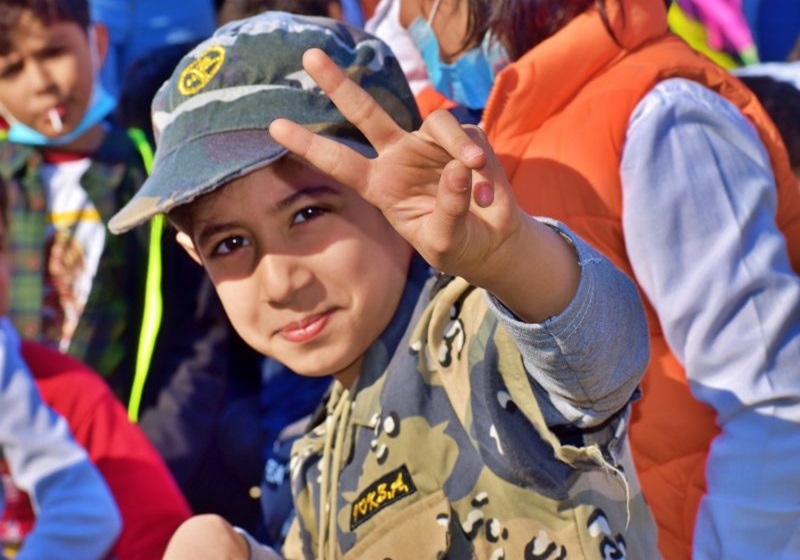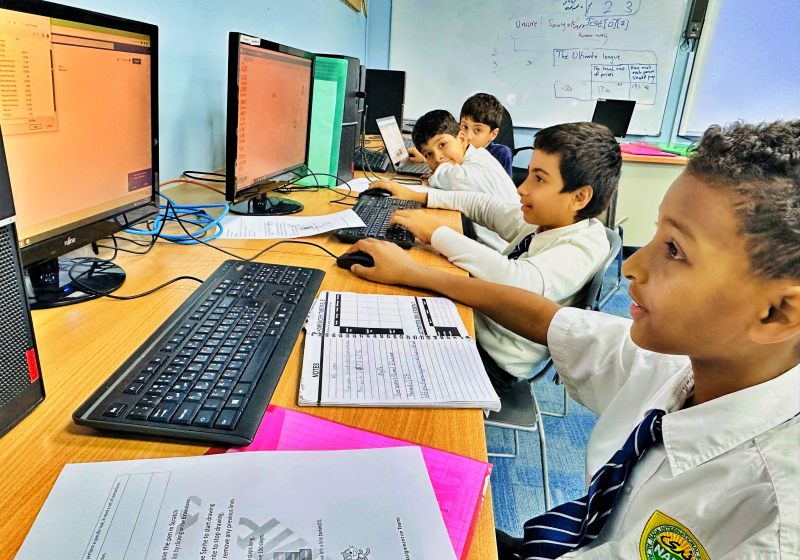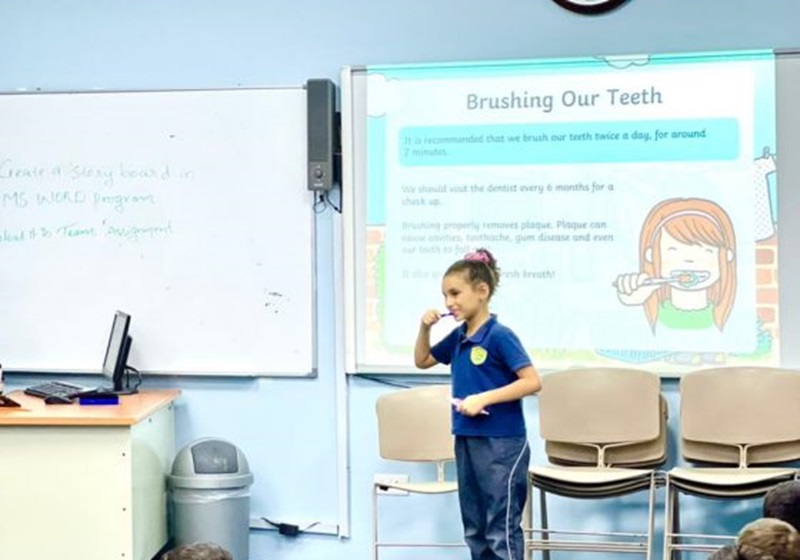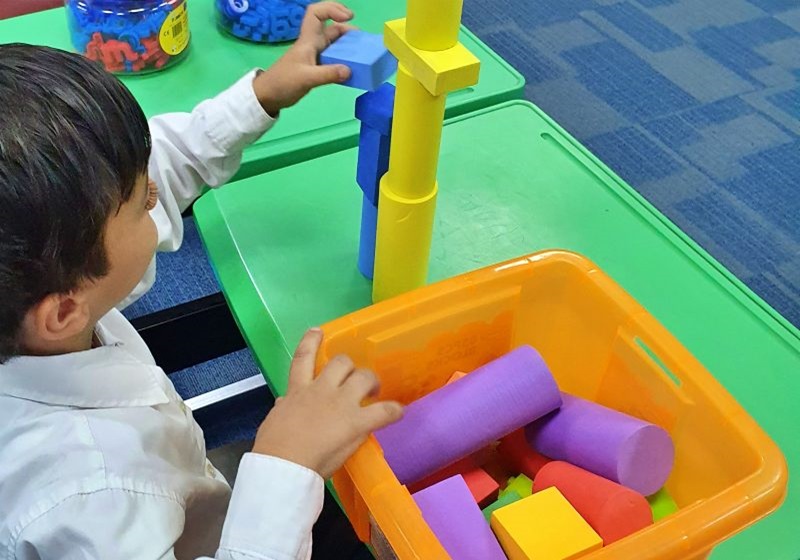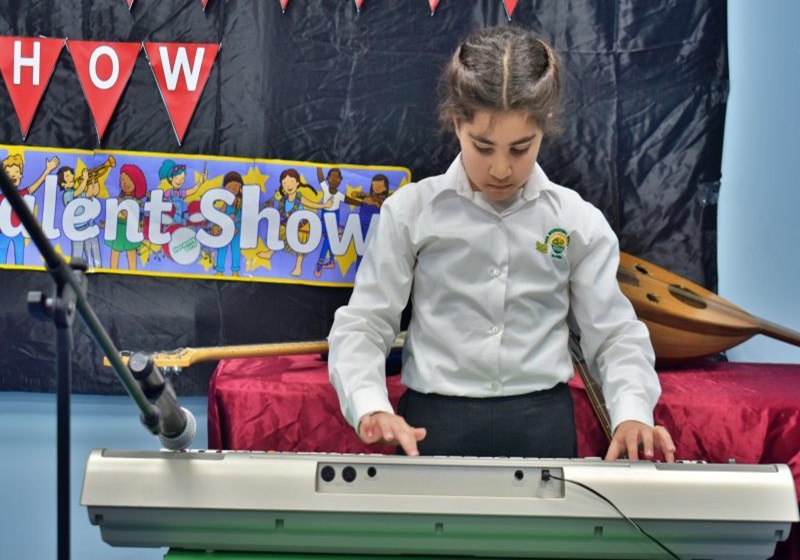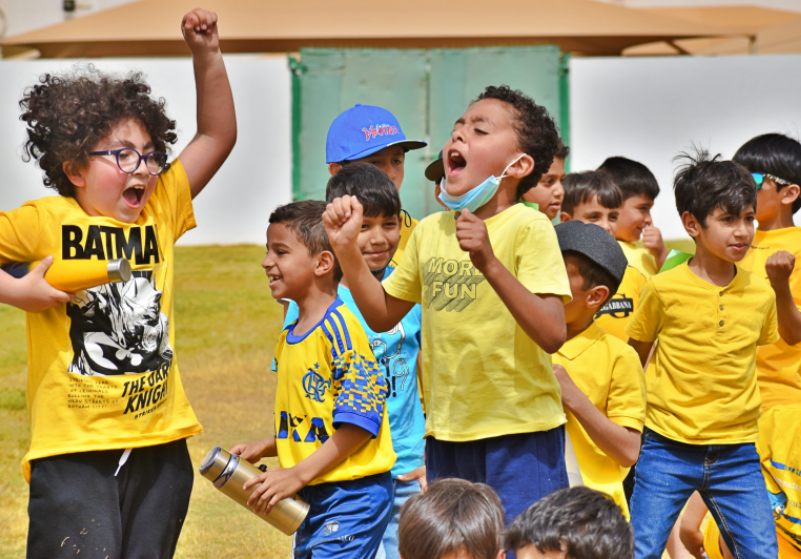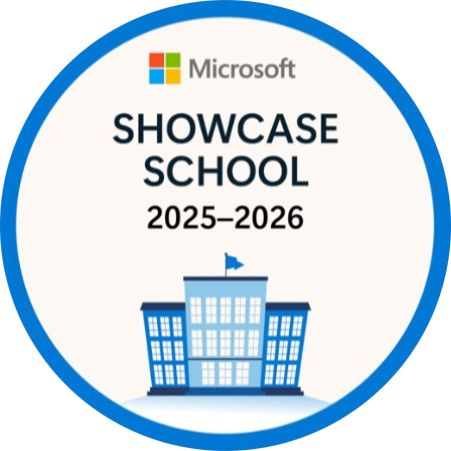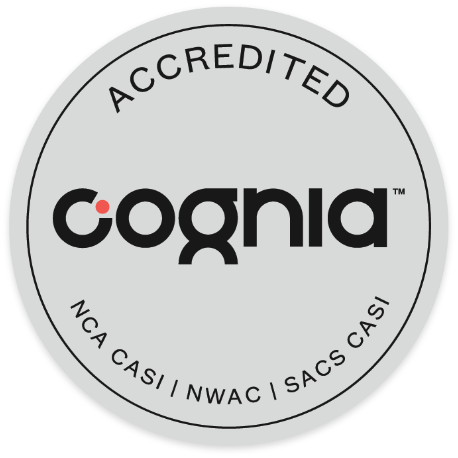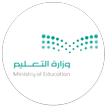Grade 1-5 (Stage 2-6)
From Grades 1-5, Nada International School (NIS) follows the Cambridge Primary curriculum which focuses on equipping children with the core subject skills first, and then providing an exciting range of opportunities for them to apply their learning in an integrated context.
Alongside academic skills and knowledge, NIS emphasizes self-awareness, personal development, global awareness and sense of community to ensure that students become well rounded, community spirited and responsible young citizens.
NIS believes learning should be enhanced through a multitude of inspirational opportunities outside the classroom, such as day trips, residential visits and acts of service learning, which enable children to excel personally and academically.
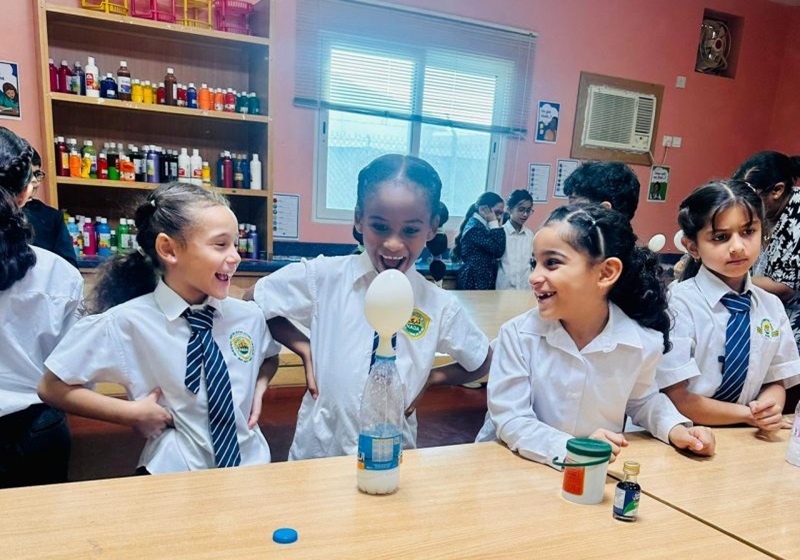
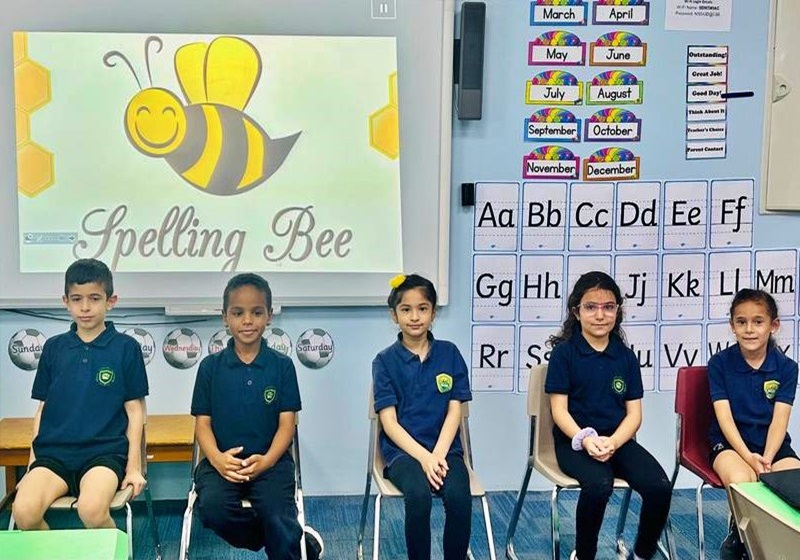
English as a second language
Our English as a Second Language program focuses on developing language skills through reading, writing, listening, and speaking activities. It aims to enhance vocabulary, grammar, and comprehension abilities.
Emphasizing literacy skills, the curriculum introduces various texts and encourages analysis and interpretation. It also promotes effective verbal and non-verbal communication, fostering confident and appropriate expression.
Critical thinking is encouraged through the analysis of information, making connections, and problem-solving, aiming to develop independent critical thinking abilities.
Mathematics
The mathematics curriculum focuses on enhancing critical thinking skills through various mathematical concepts and problem-solving strategies. It covers number sense, geometry, measurement, and data handling for a holistic understanding.
The curriculum progressively builds on previous knowledge, helping students develop a strong mathematical foundation and grasp real-life applications of math. Regular assessments and feedback are incorporated to monitor progress and offer targeted support as necessary.
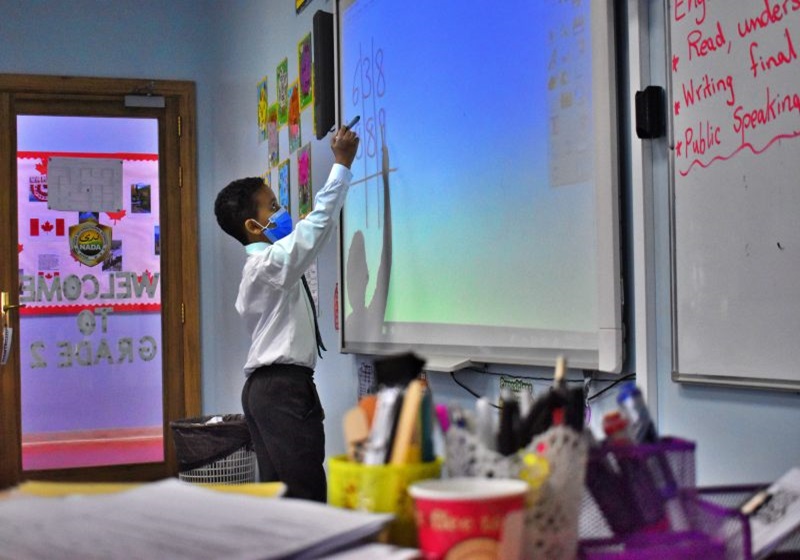

Science
Our science curriculum offers a comprehensive exploration of biology, chemistry, and physics through interactive lessons and hands-on experiments. It covers life sciences, physical sciences, and earth sciences, fostering a holistic understanding. Inquiry-based learning encourages critical thinking and problem-solving through hands-on activities. The curriculum focuses on developing scientific skills like observation, data collection, and analysis, while promoting communication and collaboration. Regular assessments and checkpoints monitor students’ progress and ensure effective learning outcomes, providing clear guidelines for teachers to assess understanding and offer targeted support.
Social Studies
The social studies curriculum delves into history, geography, and culture, providing an understanding of the world. It introduces the concept of society and individual roles within a community. Cultural diversity is emphasized to foster understanding and respect for various cultures. Students develop geography skills, read maps, understand landforms, and identify countries/continents. Additionally, the curriculum instills civic responsibility and introduces basic democratic principles and government roles.
